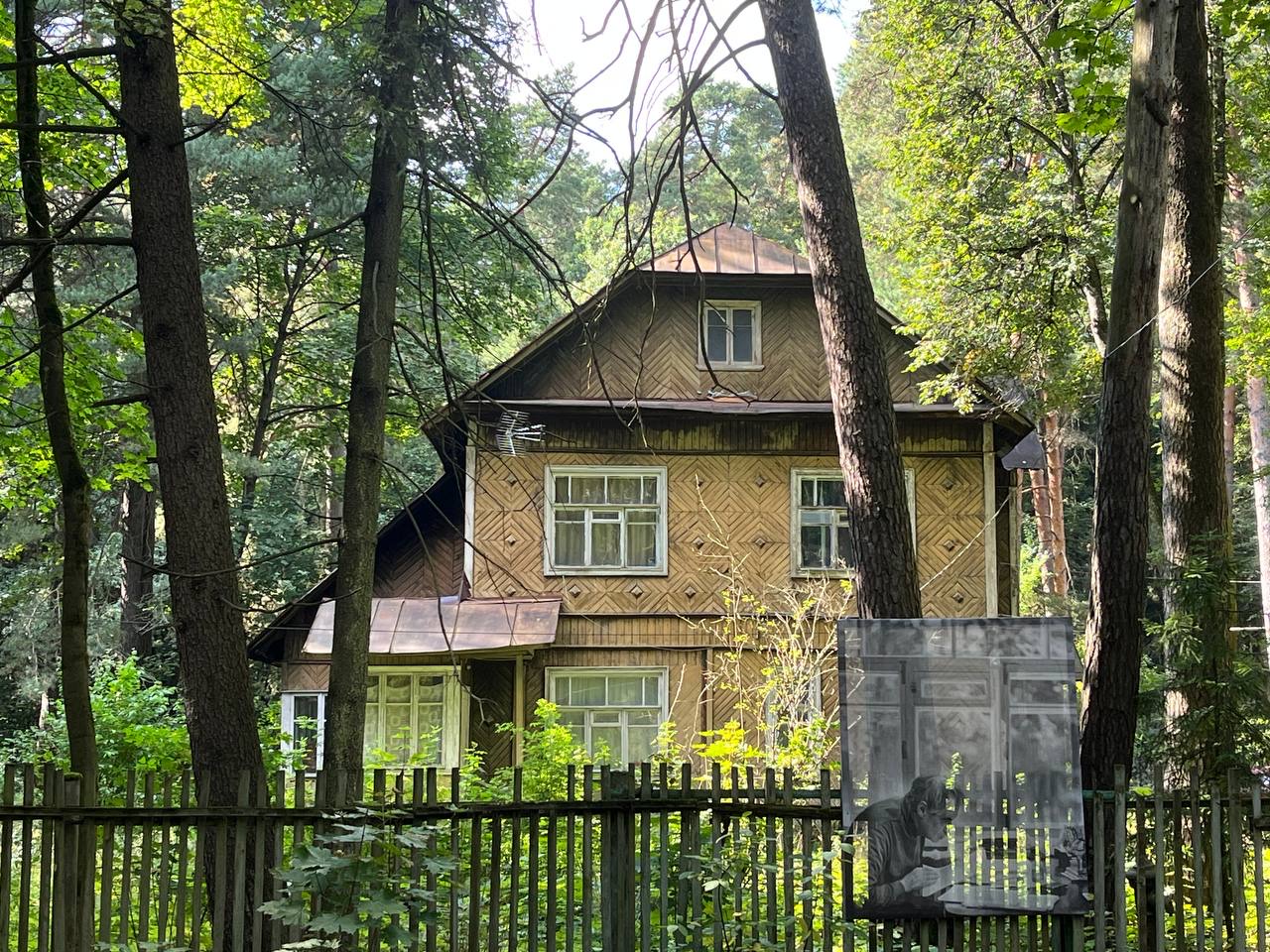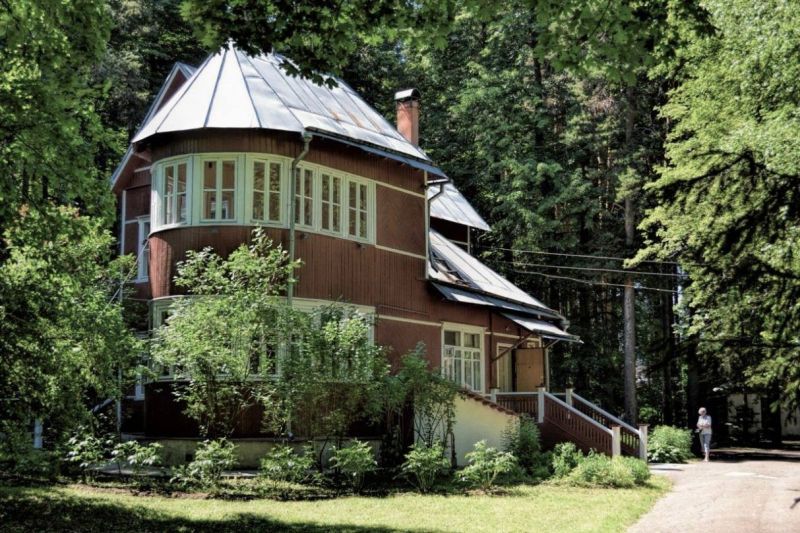“Comrade Babel, why are you late again?”
“Sorry, Fedin, I was kept busy at the publishing house. Well, are we going to Peredelkino?”
In the Soviet times, the way to the writers’ township of Peredelkino for many people began from Pushkin Square where a special bus was on duty every day. It took belated writers from the center of the capital to the quiet country area. Now, the most convenient way to get to Peredelkino is by a commuter train that runs every half an hour from the Kievsky Railway Station to the ‘Kresty’ (Crosses) or ‘Nary’ (Jail) stations. These stations are quite symbolic as according to one version, the village of Peredelkino was named so in the days of Ivan the Terrible; the tsar exiled felony offenders to these places for their rehabilitation, or rather reeducation.
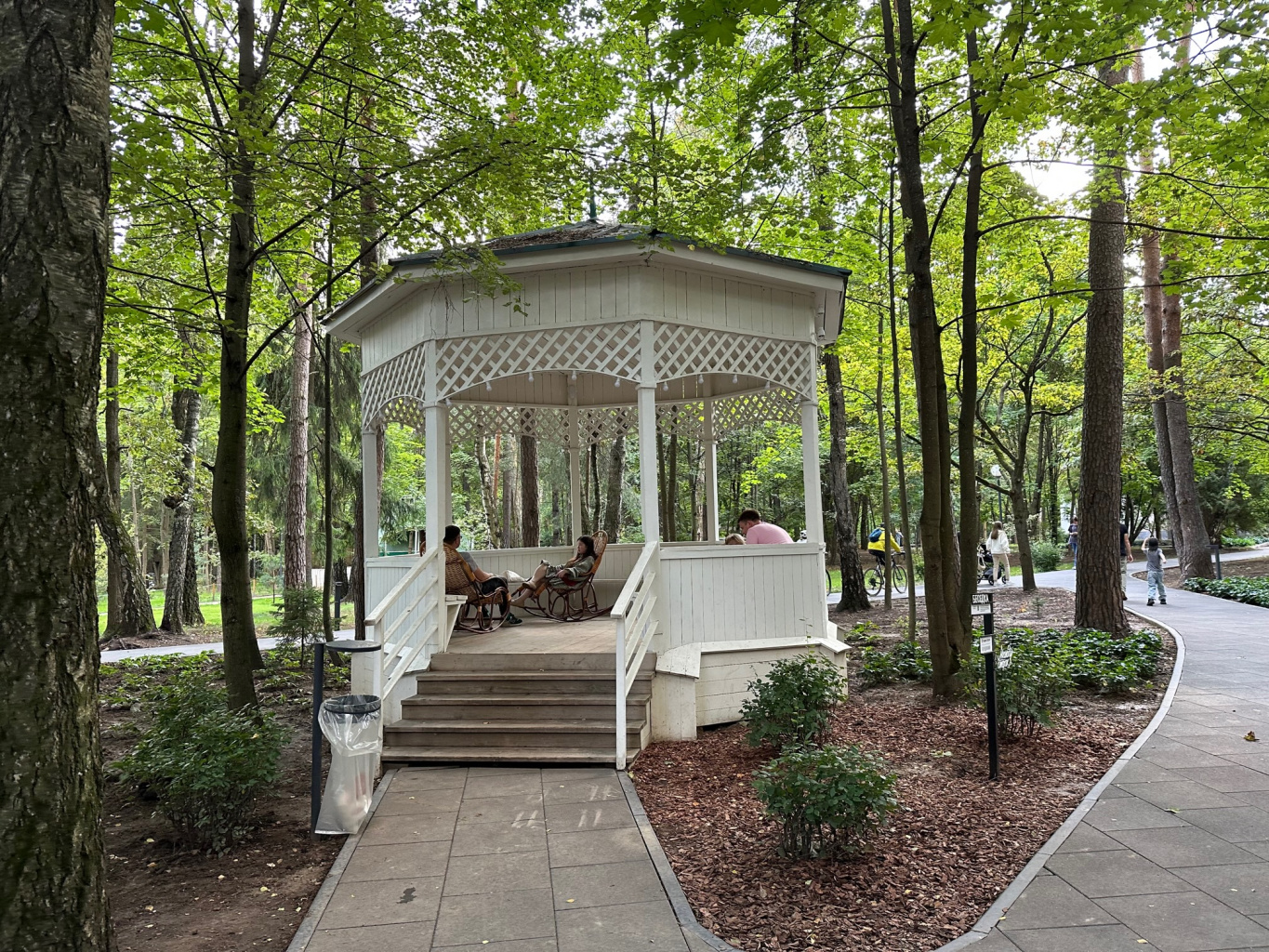
The history of the writers’ township of Peredelkino began in the 1930s. This unusual idea was put forward to the leader of the USSR Joseph Stalin by Maxim Gorky, a writer who returned to the country after many years of staying in Capri. According to the official version, the proponent and herald of the revolution was undergoing medical treatment in Italy; according to a less official version, his income began to fall, so he was very glad to take the Soviet government’s offer to head the Writers’ Union in the USSR. Gorky selected 30 promising young writers whose complete financial independence should be provided, they should be given the right to study any materials, as well as the opportunity to write books that would answer the serious questions of the time. Addressing the writers at the first congress of the Writers’ Union, Joseph Stalin proposed the following toast “Your production is connected with all the production in the country. You are the engineers of a human soul.” The writers demanded increased fees and also asked for houses where they could live and create. As a result, the first 30 dachas (country cottages) were built on a 40-hectare area among a pine forest not far from the Setun River. Later on, 20 dachas more were built there. For some writers, a country cottage in the middle of the forest made them really happy taking into account the acute housing problem in Moscow at that time. Of course, there were not enough country cottages; in his novel The Master and Margarita, Bulgakov described the real strife over the distribution of dachas in the village of Perelygino. Nevertheless, the most famous writers worked in the cozy houses of Peredelkino at different times, including Boris Pasternak, Korney Chukovsky, Bulat Okudzhava, and Evgeny Yevtushenko. By the way, these country cottages were their life estates. And to make them ‘write better’, a black prison-van periodically appeared in the streets of Peredelkino. In the turbulent year of 1937, 25 writers were arrested from Peredelkino. Soon, new residents moved into their country cottages.
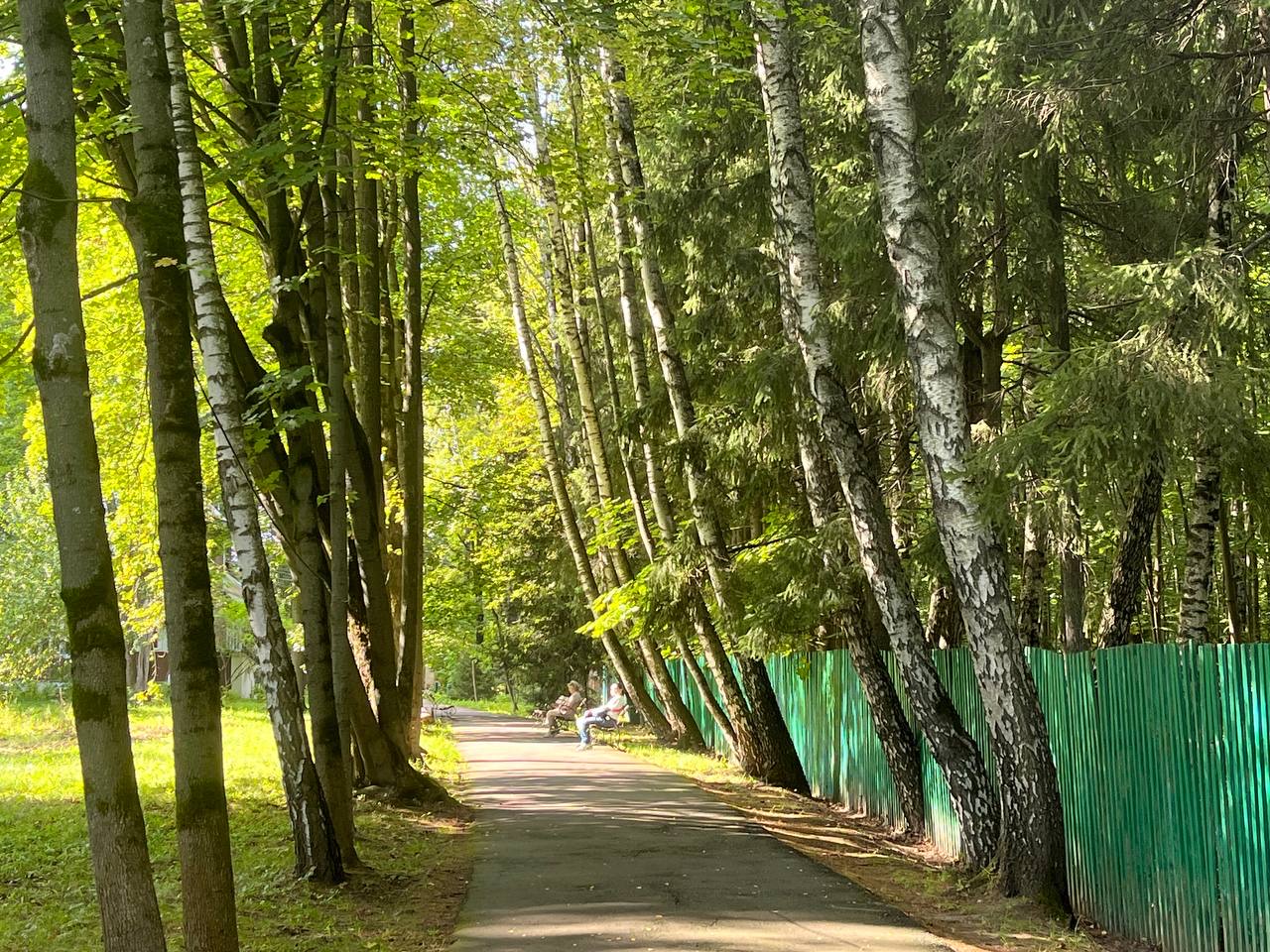
Peredelkino that was set up as a writers’ township, today is one of the popular and accessible tourist attractions. Of course, this was not always the case; back in 2015, there were dozens of visitors in Peredelkino, and tens of thousands of visitors come to Peredelkino today. What can visitors do in the writers’ township? They can take a walk through the coniferous forest and relax in the gazebo where Bella Akhmadulina once loved to spend time or they can lie swinging in a hammock, reading a new volume of poems and enjoying modern art objects, for example, the installation Trees by Nikolai Polissky. For lunch, they should go to the popular Library restaurant where the tradition of having a cup of tea and reading a book has been preserved. But it’s best to take a sightseeing tour to get a closer look at the history of the writers’ township. The cost of the 1.5-hour tour of the township is 1,200 rubles. By the way, the excursions are very popular. Last year, such excursions started every hour and this year, they start every 30 minutes.
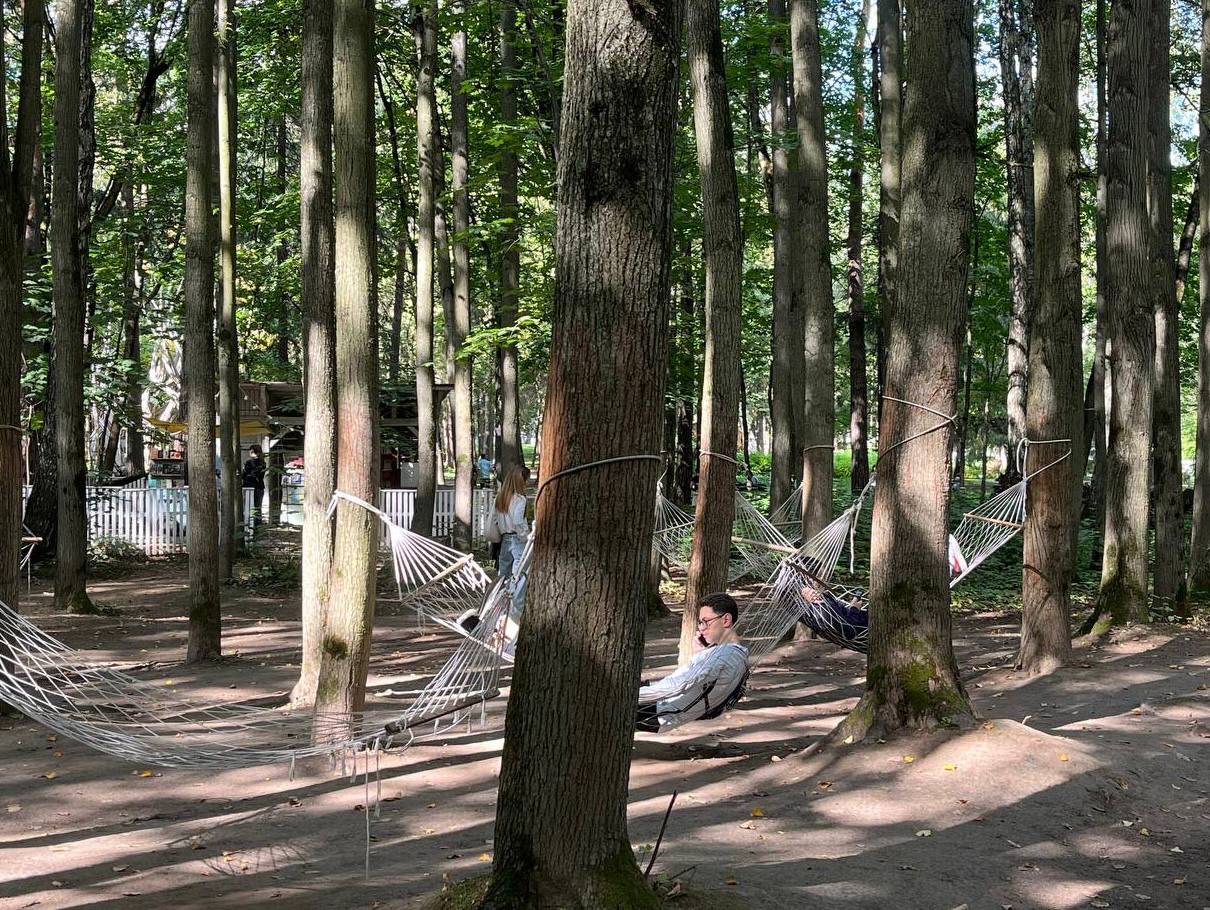
Excursion groups gather at a white building with columns. This is one of the main points in Peredelkino - the House of Creativity. It was built in 1955 when the number of writers in the Writers’ Union of the USSR exceeded 3,500; there were not enough country cottages for every writer. In the House of Creativity, writers could relax for a whole month enjoying the comfort. Each of the 24 rooms had everything a creative person needed, including a desk, a typewriter and a sofa for meditation. And in the hall on the ground floor, there was a telephone for communication with the editorial offices in Moscow. After a hard day, of course, the writers and poets needed rest. Actor, poet and singer Vladimir Vysotsky, for example, was a first-rate billiard-player. In the evening, they watched films, including those brought from the Kremlin that were not widely available. For many years, the House of Creativity was abandoned. Today, it is the place where the action is, and exhibitions and literary meetings are held there.
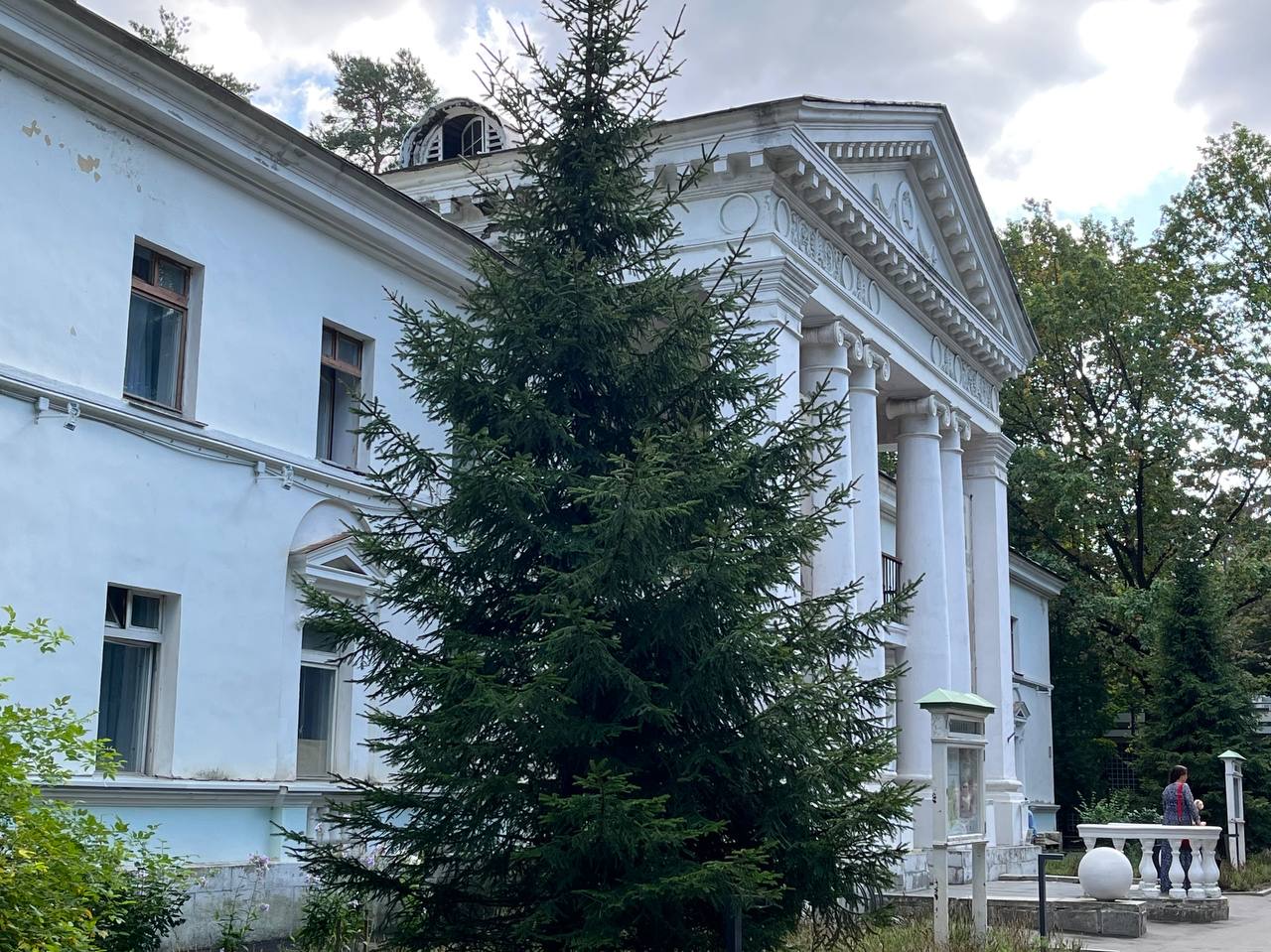
The writers’ country cottages, dachas, are being actively renovated and improved. Quite recently, a plate with the poem “Wait for Me” by Konstantin Simonov appeared on the gate of Lev Kassil’s country cottage on Serafimovich Street. It turns out that K. Simonov came here to stay in 1941. The poet wrote his famous lines in Peredelkino “Wait for me and I will return. Just wait for me very much” that became a talisman and even a prayer for soldiers during the Great Patriotic War. Several dachas became a museum. One of the most popular and striking is the house-museum of Korney Chukovsky at 3A, Serafimovich Street. At the entrance, visitors see a ‘lost-and-found things’ tree. Every summer, the writer organized children’s festivasl - Hello, Summer and Goodbye, Summer - and all the things that the kids lost while playing and dancing were hung on that tree. A funny tradition has been preserved to this day. Some visitors still leave Panama hats and toys as souvenirs on the wonderful tree. Inside the museum, you can see the long gown received by Korney Chukovsky at the Oxford University. Few people know that at the age of 19, he went to London to become a newspaper correspondent. And Korney Chukovsky became a first-class translator; it took him just a year to learn the English language. Korney Ivanovich even published his book The High Art of Translation that has become a classic book for everyone in the USSR who studies foreign languages.
There is a library next to the Korney Chukovsky’s Museum. The writer gave it to young readers. Perhaps, it was the first gift from a private person to the state. When the library was set up, Chukovsky asked all his friends to collect children’s books; now, you can find unique books in the library with autographs of famous writers. “The library has really become great. This is my best work. Three cozy rooms, warm, bright, elegant, a lot of children come (at least 40 children a day!) who read voraciously - and right here, in the library, they do their homework sitting at all the tables, and they are happy about every new book I bring from Moscow,” Chukovsky wrote to his friends. By the way, the library keeps on working.
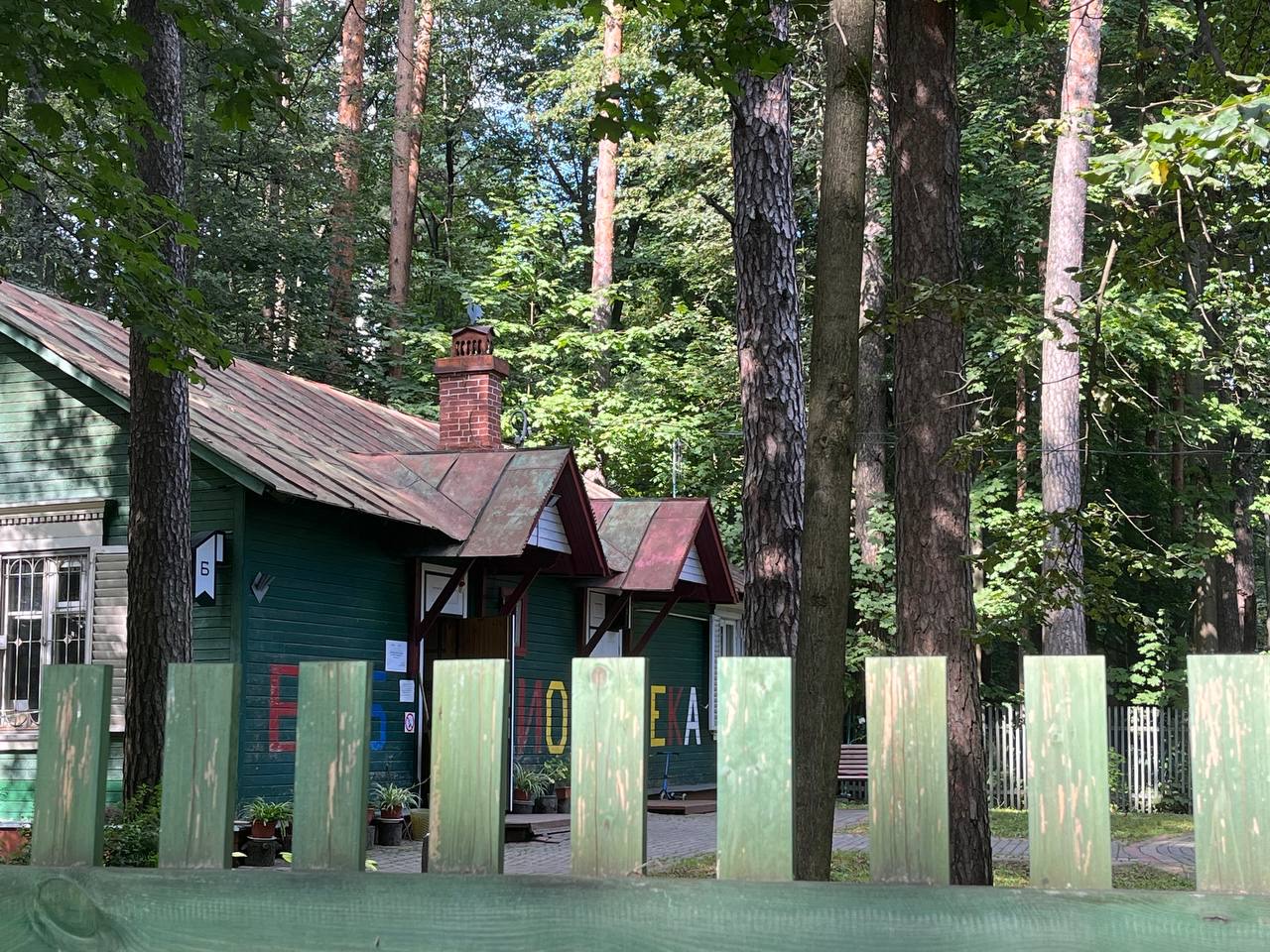
The very first museum in Peredelkino and the final destination of the ‘literary’ excursion is Boris Pasternak house-museum. The writer moved there after a severe creative crisis and he was able to start writing again only here. By the way, Pasternak led a truly ‘country’ lifestyle in Peredelkino, unlike many writers. He dug the garden, worked in his greenhouse, took care of the apple trees. There were always rubber boots at the entrance and Pasternak walked a lot. “You see, I can start writing,” he said in his phone calls to Anna Akhmatova from Peredelkino. And he really started writing. It was here that Boris Pasternak created his famous novel Doctor Zhivago. The book was not accepted in the Soviet Union - the meaning of the revolution was incorrect. Boris Pasternak got to know about this on the day when he was awarded the Nobel Prize “for outstanding achievements in modern lyric poetry.” There is even a photograph in the country cottage where the writer got the good news - he has never been so inspired. But on October 27, 1958, Pasternak was expelled from the Writers’ Union. Having learned about this, the first question he asked was “Do you think my dacha will be taken away?” The writer never received the Nobel Prize; he refused it due to the domestic ostracism. “I didn’t read the work by Pasternak, but I condemn it,” the crowd said. The writer died on May 30, 1960 at his country cottage in Peredelkino. Justice triumphed only in 1990, when UNESCO declared 1990 the year of Pasternak. Russian President Boris Yeltsin signed a decree establishing a literary museum at his dacha. This was the first step towards the history of the new Peredelkino.
By the way, people keep on living in some country cottages in the writers’ township. For example, journalist Tina Katayeva, Valentin Katayev’s granddaughter, lives today at the dacha, country cottage, earlier belonged to her grandfather, the Yunost (Youth) magazine’s editor. A writer or a poet still needs to be a member of the Writers’ Union of Russia to get a dacha in Peredelkino. And as before, intrigues and wars of local significance are being waged here to get them.
